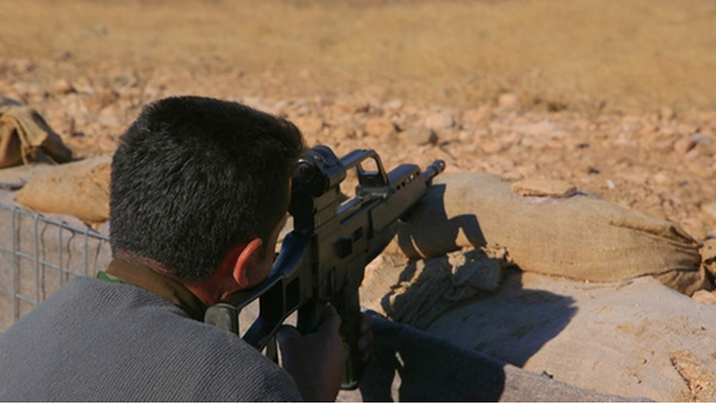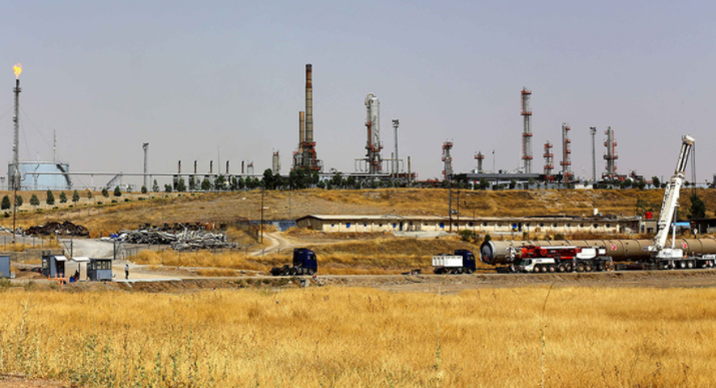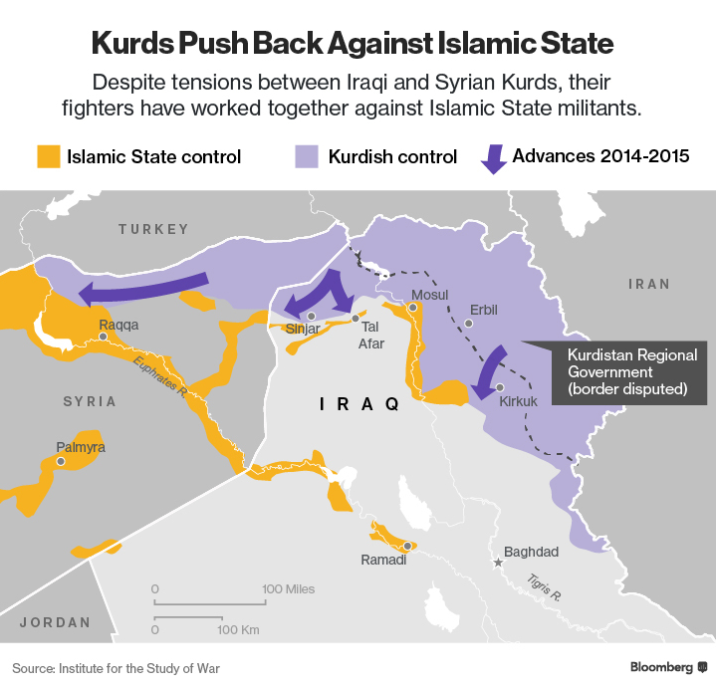Last year’s sweeping offensive by Islamic State militants through northern Iraq thrust one community in particular to the fore – the Kurds.
As Baghdad’s power withered under the assault, Kurdish leaders spoke about transforming their semi-autonomous status into full independence. And as Kurdish fighters, known as the peshmerga, backed by U.S.-led airstrikes emerged as one of the most effective counters to the jihadists, they were lavished with Western praise and military aid.
Eighteen months later, the governor of Erbil, capital of Iraq’s Kurdistan Regional Government, admits that some peshmerga are fighting Islamic State without being paid on time.
Here’s an overview of what’s at stake:
Oil Standoff and Slump
The Kurdistan Regional Government, which was formed in 1992 and rules an area larger than the Netherlands from its capital in Erbil, is locked in a dispute with Iraq’s central government in Baghdad over the sharing of revenue from oil sales. Finances already squeezed by the impasse have been further eroded by the global slump in crude prices, and the cost of looking after 1.5 million refugees who sought a safe haven in the Kurdish zone.
Spending has plummeted with about 6,000 projects stalled in the region so far. They include a Marriott Hotel at Erbil’s Empire World development, one of Iraq’s biggest, according to its head of media and marketing, Jihad Omar.
The cash-strapped KRG has fallen months behind in paying public-sector wages, which account for more than 70 percent of its budget. An undercurrent of tension erupted into view in October, when five people were killed and 200 wounded in unrest following protests in several towns and cities.
The Iraqi Kurdish enclave will need at least $1.4 billion to stabilize the economy after growth slowed from 8 percent in 2013 to 3 percent last year, and poverty doubled, according to the World Bank.
Dlawer Ala’Aldeen, founding president of the Middle East Research Institute in Erbil, says the Kurds’ dependence on oil meant this was a “crisis waiting to happen.” Still, with Islamic State in northern Iraq “no longer the existential threat that it was a year ago, and the oil price not getting any worse,” the future may be brighter, Ala’Aldeen said.
Healing a widening rift between the two dominant forces in Iraqi Kurdish politics may be harder.
The Patriotic Union of Kurdistan, led by Jalal Talabani since the region gained autonomy and which has held the presidency of Iraq, is losing support. That’s upsetting a delicate power-sharing agreement with the Kurdistan Democratic Party, led by the region’s president, Massoud Barzani.
In the most recent parliamentary elections, the PUK fell to third position after being overtaken by the Gorran (Change) Party, which won votes from Kurds upset over alleged corruption.
‘Don’t underestimate the Kurds’ capacity for self destruction’ Liam Anderson, University of Ohio
Arguing now isn’t the time for a possibly destabilizing change in leadership, Barzani has refused to step down from his already extended term in office, undermining his own legitimacy. Gorran lawmakers have been removed from the KRG coalition cabinet after the KDP accused the party of attacking its offices.
“There’s no clarity on who will end up controlling the region, and potentially on the unity of Kurdistan on the whole,” said Ayham Kamel, Middle East and North Africa director at Eurasia Group. “The Kurdish dream of independence is on hold until further notice.”
Nawzad Hadi, the KDP governor of Erbil, acknowledged the differences but said they could be bridged. “We will reach agreement among Kurds,” he said in an interview in the city last month. Efforts will ensure unity at “this very critical period in Kurdish history,” he said.
Old Wounds
Iraqi Kurdish leaders consolidated their power following the first Gulf War as the U.S.-led coalition created a partial no-fly zone in northern Iraq to protect the region from Saddam Hussein’s regime.
Subsequent elections saw the KDP and PUK equally balanced in the new Kurdish government. But a struggle for preeminence between them erupted into civil war in 1994 that lasted for about four years.
“Don’t underestimate the Kurds’ capacity for self destruction,” said Liam Anderson, co-author of “The Future of Iraq, Dictatorship, Democracy or Division” and a professor of politics at Wright State University in Ohio. “Look at the 1990s, they had everything going for them and then blew it. There are quite deep sources of division within Iraqi Kurdistan.”
Despite the turmoil in Erbil, Kurdish forces have remained effective. They retook the symbolically important town of Sinjar from Islamic State last month, and have pushed the militants out of other northern towns and cities.
Some peshmerga haven’t received salaries for some time, “but they trust the government that later they will be paid,” Hadi said in the interview.
(Kurdish fighters in northern Syria have also had battlefield successes against Islamic State. They forced the militants from areas on the Turkish border, and have won strategic victories closer to the jihadists’ stronghold of Raqqa.)
There are limits to how far south the Kurds can fight given Iraq’s ethnic and sectarian makeup.
“The Kurds are fighting for their territory, the problem we have is the further south they go, these are not uncontested areas,” Anderson said, referring to regions where Arab Sunni or Shiite Muslims dominate. “The peshmerga are likely to be the most enthusiastic fighters, but them leading the fight against ISIS is storing up problems for later,” he said. Should tensions between the KDP and PUK deteriorate, there’s also a question of where peshmerga loyalties lie, he said.
“After ISIS is in some way defeated in Iraq there will be issues that need to be addressed,” said Kawa Hassan, director of the Middle East and North Africa program at the EastWest Institute in Brussels. Not being united, he said, “weakens the Kurdish leverage in a post-ISIS Iraq.”
With assistance from Ed Kiernan and Angelina Rascouet
Source: http://www.bloomberg.com/news/articles/2015-12-07/the-kurds-trying-to-beat-islamic-state-have-lots-of-other-problems




 RSS Feed
RSS Feed